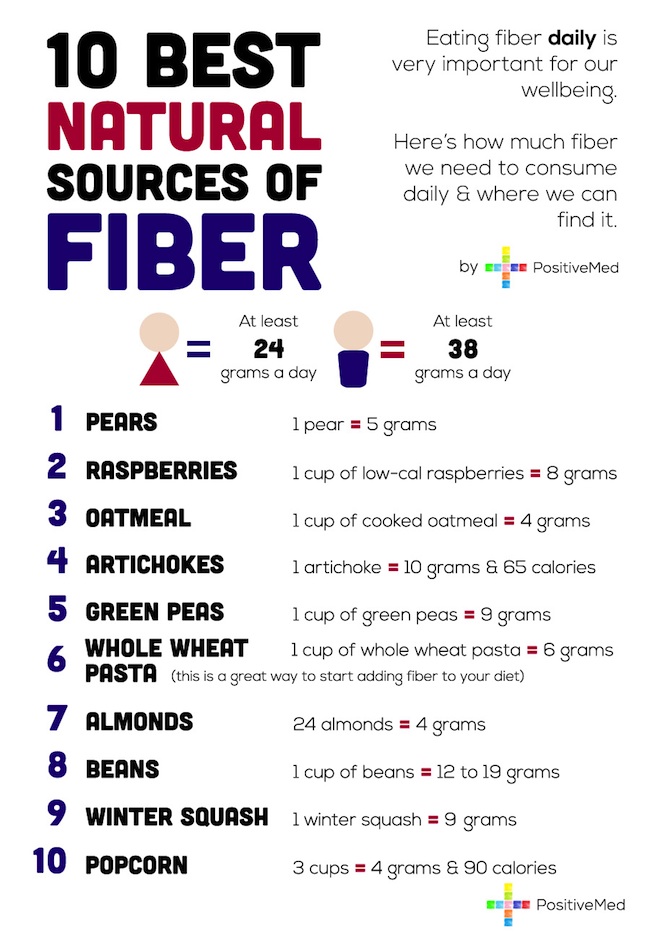It’s very important to eat enough fiber daily, but what many of us don’t know is how much we need to eat and how much is in our food. The best way to get fiber is to find out the natural sources. Women should have at least 24 grams per day, while men should have at least 38 grams per day. Here are the 10 best natural sources of fiber via this infographic:
1. <h2>Pears:</h2> 1 pear has 5 grams of fiber
2. <h2>Raspberries:</h2> one cup of low-calorie raspberries contains 8 grams of fiber
3. <h2>Oatmeal:</h2> one cup cooked oatmeal equals 4 grams
4. <h2>Artichokes:</h2> 1 artichoke has 10 grams of fiber and just 65 calories
5. <h2>Green peas:</h2> one cup of green peas possesses 9 grams of fiber
6. <h2>Whole wheat spaghetti:</h2> one cup equals 6 grams (whole wheat products are a great way to start adding fiber to your diet if you can tolerate gluten)
7.<h2> Almonds:</h2> 24 almonds have 4 grams of fiber
8. <h2>Beans:</h2> one cup of beans contains 12 to 19 grams of fiber
9. <h2>Winter squash:</h2> one cup of winter squash has 9 grams of fiber
10. <h2>Popcorn:</h2> 3 cups popcorn equals 4 grams of fiber with just 90 calories. Go the natural route, do not use microwave popcorn and go easy on the butter, cheese, and salt.
Edited 7/30/14 SCD







